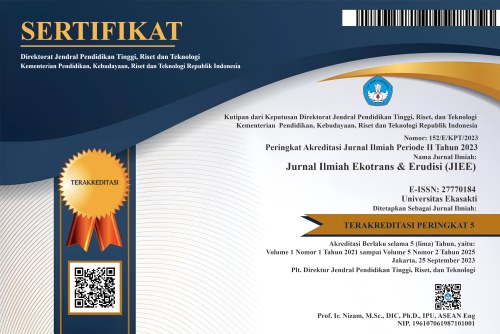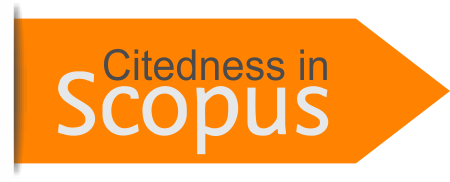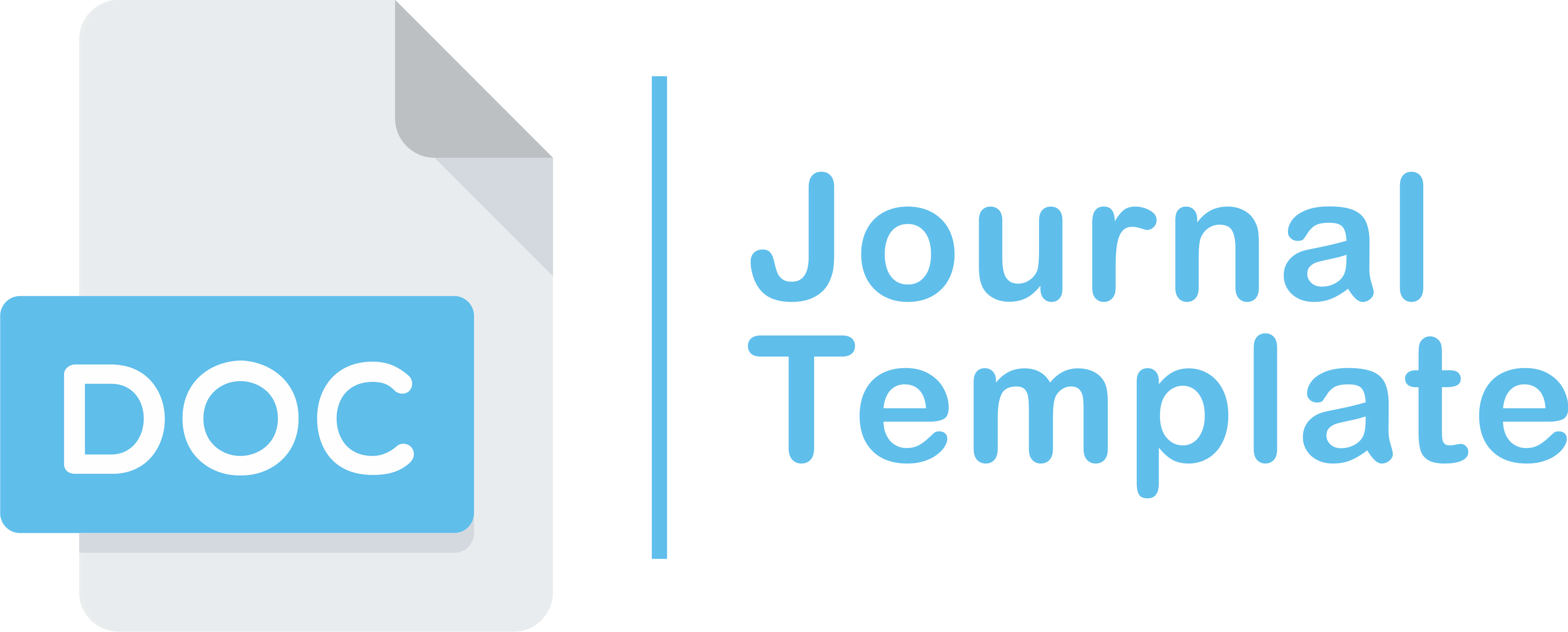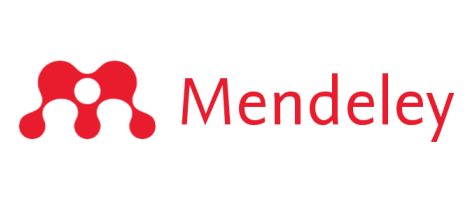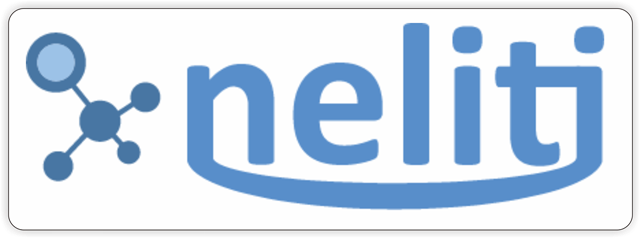Transparency and Accountability of Village Fund Management
DOI:
https://doi.org/10.69989/b216ta79Keywords:
Transparency, Accountability, State FinancesAbstract
This Literature System Review seeks to assess the application of financial management principles, specifically transparency and accountability, in the management of state finances at the Village APBDes. The Elucidation to Law of the Republic of Indonesia Number 17 of 2003 on State Finances states that the overall objective of state financial management is to promote good governance in state administration. Therefore, state financial management should be conducted in a professional, transparent, and responsible manner, adhering to the fundamental regulations outlined in the Constitution. The extensive litigation surrounding the misappropriation of village finances by village heads and officials serves as a fundamental premise for this research. When discussing the state financial management system, it is essential to address the management of village funds. These monies are a component of state finances, and their utilization must be properly accounted for. Analysis of fiscal matters at the state level. To ensure the proper functioning of state activities, it is imperative for the government to establish a robust and transparent state financial administration system. This system should effectively prevent any instances of financial leakage, both in terms of revenue collection and expenditure management. State financial management refers to the comprehensive actions undertaken by state financial management officials in accordance with their position and power. These actions encompass planning, execution, oversight, and responsibility. The findings of the literature system review research indicate that in order to establish transparency and accountability in the management of village funds, it is necessary to have legal clarity, coordination and oversight, and community engagement. Additionally, this endeavor requires officials who possess competence and have access to suitable facilities.
Downloads
References
Alwindria, Y., Taufik, T., & Azlina, N. (2020). Akuntanbilitas pengelolaan dana desa ( Studi Kasus pada Desa Sako Kecamatan Pangean Kabupaten Kuantan Singingi setiap Kabupaten Kuantan Singingi sebesar Pendapatan desa yang dibantu oleh pemerintah bertujuan meningkatkan. 3(2), 120–143.
Aristovnik, A., Murko, E., & Ravšelj, D. (2022). From neo-Weberian to hybrid governance models in public administration: Differences between state and local self-government. Administrative Sciences, 12(1), 26.
Ashaye, O. R., & Irani, Z. (2019). The role of stakeholders in the effective use of e-government resources in public services. International Journal of Information Management, 49, 253–270.
Asmawati, I., & Basuki, P. (2019). Akuntabilitas pengelolaan keuangan desa. Akurasi: Journal of Accounting and Finance Studies, 2(1), 63–76.
Beeri, I., Uster, A., & Vigoda-Gadot, E. (2019). Does performance management relate to good governance? A study of its relationship with citizens’ satisfaction with and trust in Israeli local government. Public Performance & Management Review, 42(2), 241–279.
Cardoso, S., Rosa, M. J., Videira, P., & Amaral, A. (2019). Internal quality assurance: A new culture or added bureaucracy? Assessment & Evaluation in Higher Education, 44(2), 249–262.
Chien, N. B., & Thanh, N. N. (2022). The impact of good governance on the people’s satisfaction with public administrative services in Vietnam. Administrative Sciences, 12(1), 35.
Christensen, R. K., Paarlberg, L., & Perry, J. L. (2017). Public service motivation research: Lessons for practice. Public Administration Review, 77(4), 529–542.
Fajri, R., Agusti, R., & Julita. (2021). Pengaruh transparansi, partisipasi masyarakat,kompetensi aparatur desa, dan pemahaman regulasi terhadap akuntabilitas pengelolaan dana desa. Jurnal Al-Iqtishad, 17(2), 209–227.
Farsakh, L. (2016). Undermining democracy in Palestine: The politics of international aid since Oslo. Journal of Palestine Studies, 45(4), 48–63.
Ferarow, N., & Suprihanto, J. (2018). Implementasi Pengelolaan Keuangan Desa Sumberadi dan Tlogoadi di Kabupaten Sleman: Evaluasi Praktik Transparansi dan Akuntabilitas. Jati: Jurnal Akuntansi Terapan Indonesia, 1(2), 64–69. https://doi.org/10.18196/jati.010207
Fiantis, D. (2018). Analisis prinsip-prinsip good governance dalam penilaian kinerja keuangan kabupaten maluku barat daya. Angewandte Chemie International Edition, 6(11), 951–952., 4(003), 5–24.
Folarin, S. (2021). Corruption, politics and governance in Nigeria. Nigerian Politics, 377–394.
Grahani, A., & Kurniawan, R. (2017). IMPLEMENTASI KETERBUKAAN INFORMASI PUBLIK DALAM PENGELOLAAN KEUANGAN DESA (STUDI DI DESA BURAN KECAMATAN TASIKMADU KABUPATEN KARANGANYAR). RES PUBLICA, 1(3), 41–56.
Hammett, D., & Jackson, L. (2018). Developing a ‘civil’society in partial democracies: In/civility and a critical public sphere in Uganda and Singapore. Political Geography, 67, 145–155.
Hassan, M. H., & Lee, J. (2019). Policymakers’ perspective about e-Government success using AHP approach: Policy implications towards entrenching Good Governance in Pakistan. Transforming Government: People, Process and Policy, 13(1), 93–118.
Ike, M., Donovan, J. D., Topple, C., & Masli, E. K. (2019). The process of selecting and prioritising corporate sustainability issues: Insights for achieving the Sustainable Development Goals. Journal of Cleaner Production, 236, 117661.
Indriani, M., Nadirsyah, Fuadi, R., & Evayani. (2020). Can Siskeudes support village governance in Aceh Province of Indonesia? Cogent Business & Management, 7(1), 1743617.
Jancsics, D., Espinosa, S., & Carlos, J. (2023). Organizational noncompliance: an interdisciplinary review of social and organizational factors. Management Review Quarterly, 73(3), 1273–1301.
Kalandides, A. (2018). Citizen participation: towards a framework for policy assessment. Journal of Place Management and Development, 11(2), 152–164.
Keping, Y. (2018). Governance and good governance: A new framework for political analysis. Fudan Journal of the Humanities and Social Sciences, 11, 1–8.
Khan, A., & Krishnan, S. (2019). Conceptualizing the impact of corruption in national institutions and national stakeholder service systems on e-government maturity. International Journal of Information Management, 46, 23–36.
Kristini, M. A., Luhsasi, D. I., & Ismanto, B. (2020). Akuntabilitas Pengelolaan Dana Desa. Wahana: Jurnal Ekonomi, Manajemen Dan Akuntansi, 23(2), 179–194.
Kurnia, R., Sebrina, N., & Halmawati, H. (2019). Akuntabilitas Pengelolaan Dana Desa. Jurnal Eksplorasi Akuntansi, 1(1), 159–180.
Latif, A., Savitri, E., & Susilatri. (2021). Pengaruh akuntabilitas, transparansi dan kualitas sumber daya manusia terhadap pengelolaan keuangan desa (Studi empiris pada pemerintah desa di Kabupaten Solok, Sumatra Barat). Bilancia: Jurnal Ilmiah Akuntansi, 5(2), 183–192.
Li, H. (2020). The Chinese discourse on good governance: Content and implications. Journal of Contemporary China, 29(126), 824–837.
Maier, F., & Meyer, M. (2017). Social impact bonds and the perils of aligned interests. Administrative Sciences, 7(3), 24.
Mardiasmo, M. B. A. (2021). Otonomi & Manajemen Keuangan Daerah: Edisi Terbaru. Penerbit Andi.
Miranda, P., & Akmal, A. (2019). Transparansi Penggunaan Dana Desa di Nagari Talaok Kecamatan Bayang Kabupaten Pesisir Selatan. Journal of Civic Education, 2(5), 412–418. https://doi.org/10.24036/jce.v2i5.192
Mutia Basri, Y., Desti Marianti, T., & Rofika, R. (2020). Pengelolaan Keuangan Desa : Analisis Faktor Yang Mempengaruhinya. JAK (Jurnal Akuntansi) Kajian Ilmiah Akuntansi, 8(1), 34–50. https://doi.org/10.30656/jak.v8i1.2379
Nafidah, L. N., & Anisa, N. (2017). Akuntabilitas pengelolaan keuangan desa di kabupaten Jombang. Jurnal Ilmu Akuntansi, 10(2), 273–288.
Pech, L. (2016). The EU as a global rule of law promoter: the consistency and effectiveness challenges. Asia Europe Journal, 14, 7–24.
Pratolo, S., Sofyani, H., & Maulidini, R. W. (2022). The roles of accountability and transparency on public trust in the village governments: The intervening role of COVID-19 handling services quality. Cogent Business & Management, 9(1), 2110648.
Ramirez, L. F. (2016). Marine protected areas in Colombia: Advances in conservation and barriers for effective governance. Ocean & Coastal Management, 125, 49–62.
Sabarno, H. (2007). Memandu Otonomi Daerah Menjaga Kesatuan Bangsa, ctk. pertama. Penerbit Sinar Grafika, Jakarta.
Saputri, S. A., Sebrina, N., & Sari, V. F. (2019). Akuntabilitas Penatausahaan, Pelaporan Dan Pertanggungjawaban Dana Desa. Jurnal Eksplorasi Akuntansi, 1(2), 523–542.
Sartika, D., & Nini. (2018). Akuntabilitas Dan Transparansi Alokasi Dana Desa (Add) Pada Nagari Labuah Gunuang. Jurnal Ekonomi & Bisnis Dharma Andalas, 20(1), 168–187.
Sharma-Wallace, L., Velarde, S. J., & Wreford, A. (2018). Adaptive governance good practice: Show me the evidence! … of Environmental Management. https://www.sciencedirect.com/science/article/pii/S030147971830598X
Shuha, K. (2018). Analisis pengelolaan dana desa (studi kasus pada desa-desa selingkungan kecamatan lubuk alung kabupaten padang pariaman). Jurnal Akuntansi, 6(2).
Soesastro, H. (2003). Governance and the crisis in Indonesia. In Reform and Recovery in East Asia (pp. 135–159). Routledge.
Subroto, G. (2019). Pajak &Pendanaan Peradaban Indonesia. books.google.com. https://books.google.com/books?hl=en&lr=&id=C73NDwAAQBAJ&oi=fnd&pg=PP1&dq=pertambangan+illegal+hukum+pertambangan+pencucian+uang+kebijakan&ots=xq3WWlnpC4&sig=_nxmPd4b1qZbp_8qETs3ojUs5hs
Sugiyono. (2018). Metode penelitian kuantitatif, kualitatif, dan R&D (edisi 2). Alfabeta.
Versteeg, M., & Ginsburg, T. (2017). Measuring the rule of law: a comparison of indicators. Law & Social Inquiry, 42(1), 100–137.
Widyanti, R. (2018). Analisis Akuntabilitas dan Transparansi Pengelolaan Dana Desa Pada Nagari Ulakan Kecamatan Ulakan Tapakis. Menara Ilmu, 12(11).
Zalnieriute, M., Moses, L. B., & Williams, G. (2019). The rule of law and automation of government decision‐making. The Modern Law Review, 82(3), 425–455.
Downloads
Published
Issue
Section
License
Copyright (c) 2023 Dedy Junaidi, M. Fachri Adnan (Author)

This work is licensed under a Creative Commons Attribution-ShareAlike 4.0 International License.
Copyright Notice
An author who publishes in the journal "Jurnal Ilmiah Ekotrans & Erudisi" agrees to the following terms:
Author retains the copyright and grants the journal the right of first publication of the work simultaneously licensed under the Creative Commons Attribution-ShareAlike 4.0 License that allows others to share the work with an acknowledgement of the work's authorship and initial publication in this journal
Author is able to enter into separate, additional contractual arrangements for the non-exclusive distribution of the journal's published version of the work (e.g., post it to an institutional repository or publish it in a book) with the acknowledgement of its initial publication in this journal.
Author is permitted and encouraged to post his/her work online (e.g., in institutional repositories or on their website) prior to and during the submission process, as it can lead to productive exchanges, as well as earlier and greater citation of the published work (See The Effect of Open Access).
All materials in this site are protected by the law. It is prohibited to quote a part of or all of this website contents for commercial purposes without the permission or consent of the editors.
If anyone finds one article or more in this journal violate or potentially violate one’s copyrights, please report to us through e-mail of Principle Contact.
Legal-formal aspects of accessing any information and manuscript in this journal website refer to the provision of license Creative Commons Attribution-Share Alike (CC BY-SA). Read more about the Creative Commons Attribution-ShareAlike 4.0 Licence here: https://creativecommons.org/licenses/by-sa/4.0/.
All information available in 'Jurnal Ilmiah Ekotrans & Erudisi' is academic in nature. 'Jurnal Ilmiah Ekotrans & Erudisi' is not responsible for loss due to the abuse of information in the website.
Information
Notice about change in the copyright policy of the journal 'Jurnal Ilmiah Ekotrans & Erudisi' : "From Volume 1, Nomor 1 onwards the copyright of the article published in the journal 'Jurnal Ilmiah Ekotrans & Erudisi' will be retained by the author"
Privacy Statement
The names and email addresses entered in this journal site will be used exclusively for the stated purposes of this journal and will not be made available for any other purpose or to any other party.


















